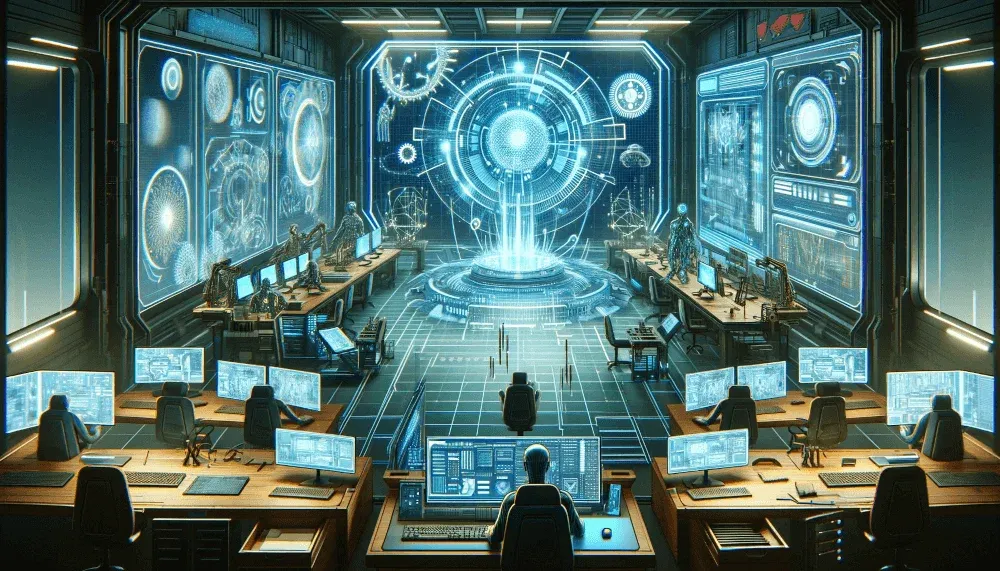The Future of Game Development? Unity 6 Coming in 2024

The gaming industry is on the brink of a significant evolution with the anticipated release of Unity 6 in 2024. Announced at the Unite 2023 event in Amsterdam, Unity 6 marks a paradigm shift in game development, introducing a suite of advanced features and a revamped business model. This article delves into the intricacies of Unity 6, exploring its new capabilities, AI-powered tools, and implications for developers and the gaming community at large.
Unity 6: What’s New?
- Naming Convention: Moving away from the “LTS” (Long Term Support) naming format, Unity has adopted a straightforward number-based naming convention with Unity 6.
- Performance Enhancements: Unity 6 promises major performance improvements, notably in multiplayer game creation. It introduces Adaptive Probe Volumes for immersive lighting, GPU Resident Drawer, GPU Occlusion Culling, and Spatial-Temporal Post-Processing for hardware-based optimizations.
- WebGPU Graphics Backend: A notable addition is the WebGPU graphics backend, enabling Unity games to run seamlessly on the web, including in web views inside native apps or browsers. This advancement is set to elevate graphics fidelity to unprecedented levels.
- Extended XR Device Support: Enhanced support for XR devices is another key feature, promising richer, more immersive experiences in virtual and augmented reality.
The AI Revolution in Unity 6
- Muse AI Tools: Unity 6 expands its Muse AI toolkit, offering tools like Muse Chat, Muse Sprite, and Muse Texture, which allow for quicker iteration and creation of 2D and 3D assets using AI. The pre-release versions of Muse Behavior, Animate, and Sketch hint at even more profound AI integration in game development.
- Unity Sentis: This tool integrates AI models directly into the Unity Runtime, allowing for enhanced gameplay features and functionalities like smart NPCs and object recognition. Sentis supports models from various sources like Tensorflow, Pytorch, and OpenAI, and uses the open ONNX file standard.
- Data and Copyright Security: Unity emphasizes responsible AI use, ensuring that Muse and Sentis are built on data that Unity owns or has licensed, thereby reducing the risk of copyright violations.
Business Model Changes and Developer Support
- Revenue Fee Structure: In a significant change, Unity 6 introduces a fee for high-earning developers based on player engagements or a percentage of revenue. This new model is Unity’s first venture into post-launch revenue collection from developers.
- Community Engagement and Feedback: Unity’s leadership has expressed a commitment to listening to and addressing the community’s concerns, especially regarding Unity’s monetization policies.
- Commitment to Stability and Performance: Unity 6 aims to focus on stability and performance enhancements. Unity assures continued support and bug fixes for older LTS versions while advancing the new engine.
Partnering for Broader Reach
- Meta Partnership: Unity announced a partnership with Meta to bring Unity titles to Instant Games on Facebook and Messenger, expanding Unity's reach in the gaming ecosystem.
- Support for Mixed Reality and Apple Vision Pro: Unity 6 will support mixed reality games for Meta Quest 3 and has introduced Unity PolySpatial for Apple Vision Pro, creating new avenues for spatial gaming experiences.
Unity 6 as a Game-Changer
Unity 6 stands poised to redefine the landscape of game development. With its enhanced performance, AI integration, and innovative business model, Unity 6 promises to be not just an engine upgrade, but a leap forward in how games are created and experienced. As we await its launch in 2024, the excitement and anticipation in the gaming community continue to grow.
